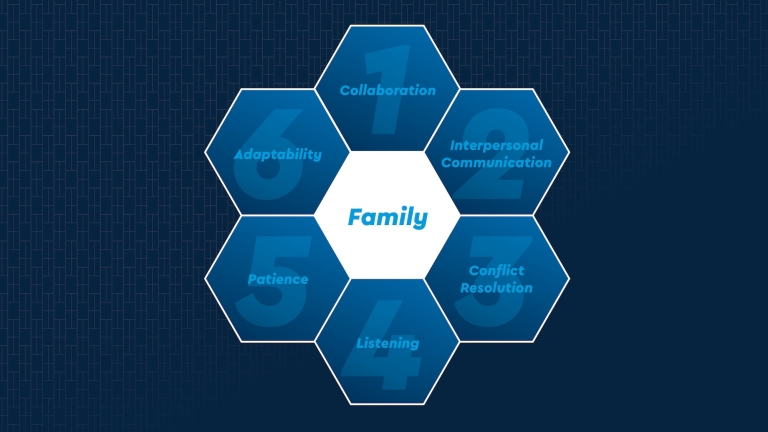
The Holy Family Experience
The Holy Family Experience is a values-based core curriculum that focuses on the development of transferable skills through the delivery of academic content.
Guided by our motto of Teneor Votis — I am bound by my responsibilities — Holy Family University’s mission is intentionally woven into our core curriculum, which is anchored by our six core values: family, respect, integrity, service and responsibility, learning, and vision.
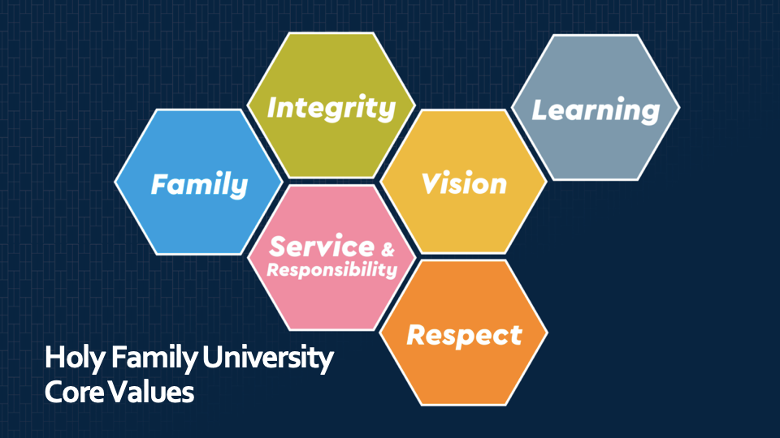
Each of these values is not just a concept but a guiding principle, each supported by six relevant, buildable skills, making a total of thirty-six skills that are reinforced throughout our coursework and extra/co-curricular activities. Together, these values and skills form a foundation for our students, cultivating a generation prepared to make meaningful contributions to society.
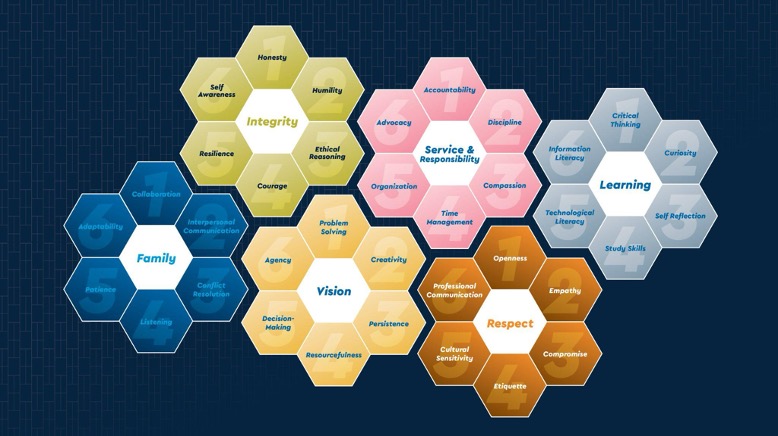
The Value of Family
As a core value, Family involves recognizing the importance of relationships and connections in one's life. It involves fostering strong bonds, open communication, patience, and a sense of unity.

The six skills associated with Family are:
- Collaboration
- Interpersonal Communication
- Conflict Resolution
- Listening
- Patience
- Adaptability
The Value of Integrity
Integrity, as a core value, encompasses the adherence to moral and ethical principles, honesty, and consistency in actions. It involves living in accordance with one's deeply held beliefs, even when faced with temptations or challenges that may compromise them.
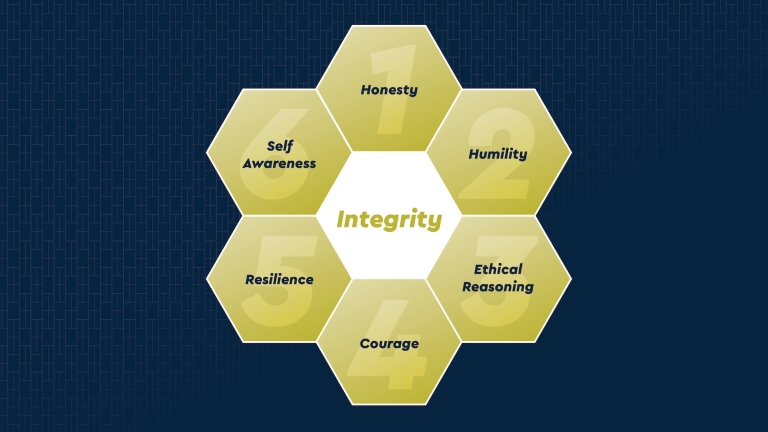
The six skills associated with the value of Integrity are:
- Honesty
- Humility
- Ethical Reasoning
- Courage
- Resilience
- Self Awareness
The Value of Respect
Respect, as a core value, embodies a deep appreciation and consideration for the inherent worth, dignity, and rights of all individuals, regardless of differences in background, beliefs, or perspectives. It involves treating others with courtesy, kindness, and fairness, and valuing their autonomy, opinions, and perspectives.
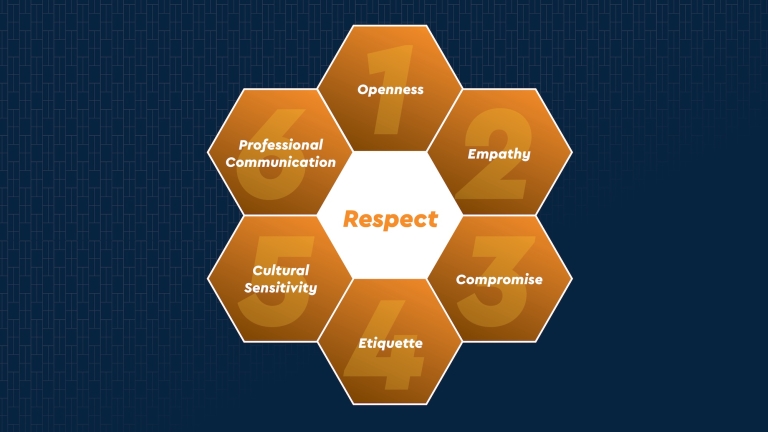
The six skills connected with the core value of Respect are:
- Openness
- Empathy
- Compromise
- Etiquette
- Cultural Sensitivity
- Professional Communication
The Value of Service & Responsibility
Service and Responsibility, as a core value, calls for the acknowledgment of and dedication to contributing positively to the well-being of others and the community at large. It involves taking ownership of one’s choices and behaviors, striving to meet obligations to God, self, others.
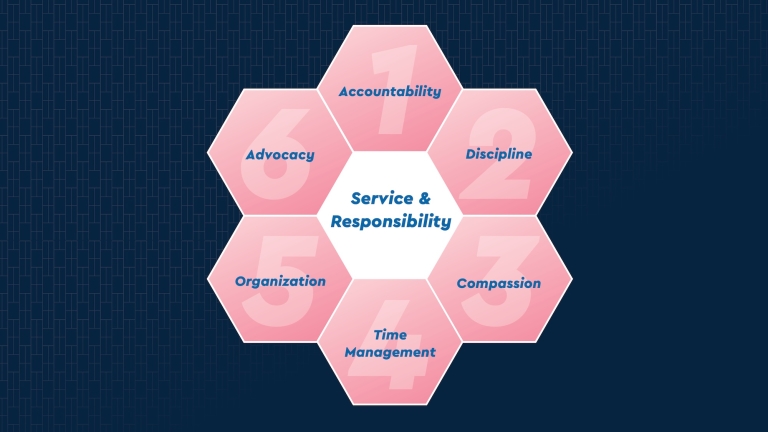
The six skills associated with the value of Service and Responsibility are:
- Accountability
- Discipline
- Compassion
- Time Management
- Organization
- Advocacy
The Value of Learning
As a core value, Learning encompasses a lifelong commitment to acquiring knowledge, skills, and experiences that foster personal growth and development. It involves an inherent curiosity to new ideas, perspectives, and opportunities for intellectual enrichment.
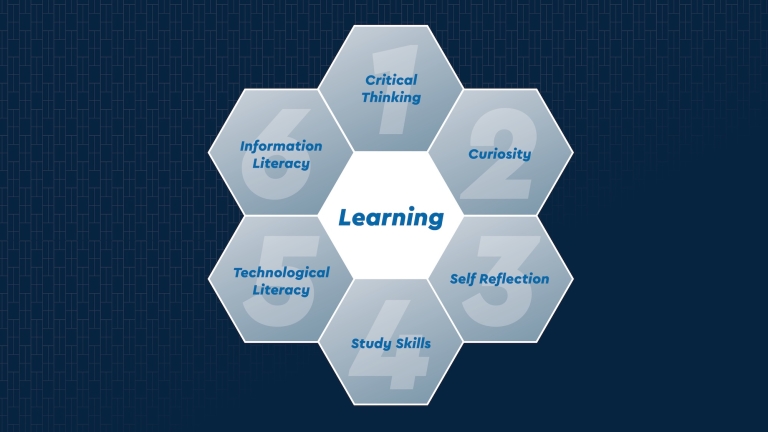
The six skills related to the value of Learning are:
- Critical Thinking
- Curiosity
- Self Reflection
- Study Skills
- Technological Literacy
- Information Literacy
The Value of Vision
The core value of Vision refers to the ability to conceptualize and pursue long-term aspirations with clarity and purpose. It involves having a clear understanding of one's goals and a strategic plan for achieving them, often extending beyond immediate circumstances to encompass broader, future-oriented perspectives.
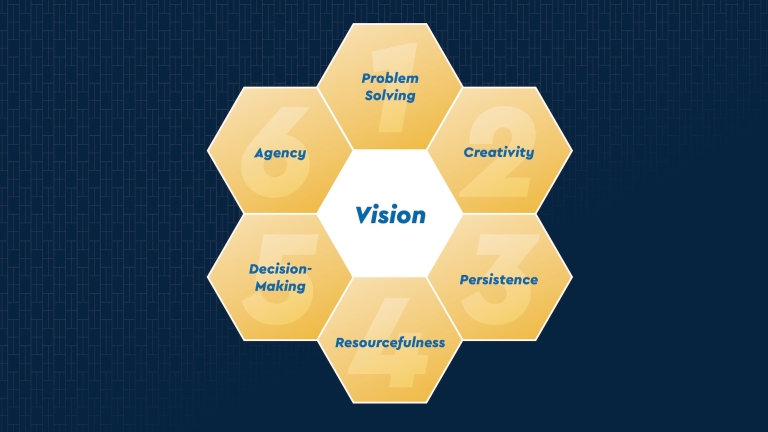
The six skills associated with the value of Vision are:
- Problem Solving
- Creativity
- Persistence
- Resourcefulness
- Decision-Making
- Agency
Designing Your Own Path
The goal of The Holy Family Experience is to assist students in designing a path to their vocation. Most core curricula at other institutions require students to take a check list of courses from a number of different disciplines usually done in the first year or two of study. For example: two second language courses, two history courses, etc. The Holy Family Experience, on the other hand, breaks its course work down into four tiers across all four years of learning.
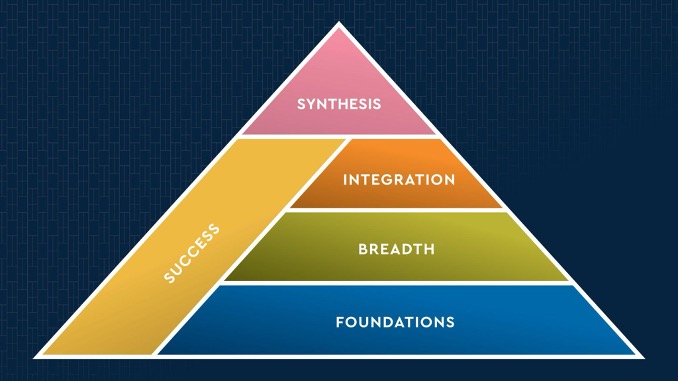
Tier One: Foundations offers students five foundational courses. These required courses allow students to experience Writing, Public Speaking, Religion, Philosophy, and Science.
Tier Two: Breadth affords students the freedom to select five courses based on their preferences with the primary objective of expanding academic breadth.
Tier Three: Integration focuses on integration because learning does not happen in a silo and employers will expect our graduates to have the ability to synthesize and apply information from diverse perspectives. Students can experience integrated learning through a number of course modalities. Many courses in this tier are team-taught interdisciplinary courses. Others are community integration courses, which means they are weekend intensive courses which incorporate experiences in the community. This tier also includes travel courses both domestically and abroad.
Alongside these three tiers are three support/success courses known as Blueprint courses. They focus on keeping students successful across the first three years. In the first semester of year one, students will take HFE 100. It is a one credit course that focuses on making a successful transition to university life. In the fall semester of year two, students take HFE 200. This is a one-credit course that helps students persist with determination on the path to degree completion. In the third year students take HFE 300 which is focused on navigating senior year and beyond.
In the fourth year students take a three credit HFEX 400 course that focuses on synthesizing all that students have learned and evaluating how well each individual student has developed the 36 essential skills.
The Holy Family Experience stands apart by weaving our core values into every aspect of our core curriculum. With four tiers to explore, students dive into foundational courses, broaden their horizons, tackle interdisciplinary challenges, and gear up for success. This approach doesn't just prepare students for various career paths; it also helps them to grow personally, and to build resilience for whatever comes their way in an ever-changing world.
